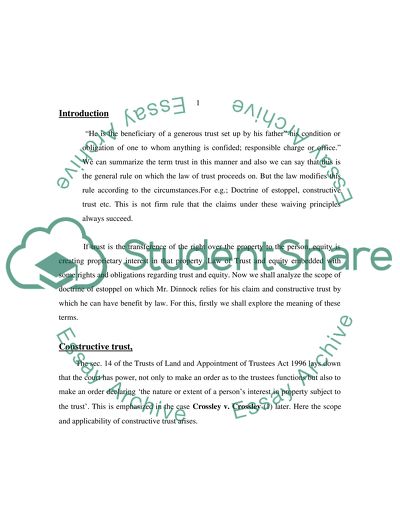Cite this document
(Law of Trust and the Property Law Essay Example | Topics and Well Written Essays - 2288 words, n.d.)
Law of Trust and the Property Law Essay Example | Topics and Well Written Essays - 2288 words. Retrieved from https://studentshare.org/law/1516298-case-law-doctrine-of-estoppel-constructive-trust
Law of Trust and the Property Law Essay Example | Topics and Well Written Essays - 2288 words. Retrieved from https://studentshare.org/law/1516298-case-law-doctrine-of-estoppel-constructive-trust
(Law of Trust and the Property Law Essay Example | Topics and Well Written Essays - 2288 Words)
Law of Trust and the Property Law Essay Example | Topics and Well Written Essays - 2288 Words. https://studentshare.org/law/1516298-case-law-doctrine-of-estoppel-constructive-trust.
Law of Trust and the Property Law Essay Example | Topics and Well Written Essays - 2288 Words. https://studentshare.org/law/1516298-case-law-doctrine-of-estoppel-constructive-trust.
“Law of Trust and the Property Law Essay Example | Topics and Well Written Essays - 2288 Words”, n.d. https://studentshare.org/law/1516298-case-law-doctrine-of-estoppel-constructive-trust.


